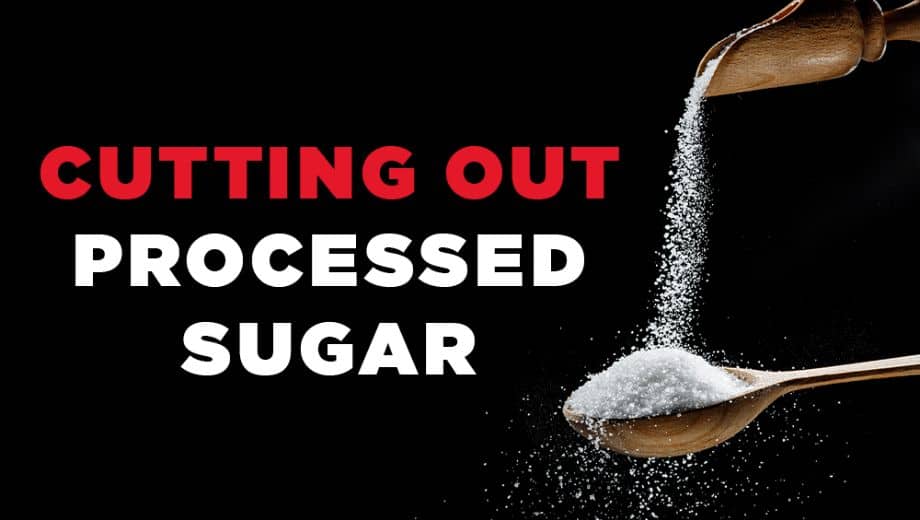Plant-Based Recovery: Optimizing Nutrition for Post-Workout Health
Plant-Based Recovery: Optimizing Nutrition for Post-Workout Health
Post-workout nutrition is critical for muscle repair, energy restoration, and overall recovery. In recent years, plant-based recovery has gained popularity among athletes, fitness enthusiasts, and urban professionals seeking nutrient-dense, sustainable alternatives to traditional animal-based recovery foods. By focusing on high-quality plant proteins, antioxidants, and complex carbohydrates, individuals can enhance performance while supporting long-term health.
The Science Behind Plant-Based Recovery
Recovery after intense physical activity involves replenishing glycogen stores, repairing muscle tissue, and reducing inflammation. Traditional approaches often emphasize animal proteins, but research shows that well-planned plant-based recovery can be equally effective. Foods such as lentils, chickpeas, quinoa, tofu, and leafy greens provide the amino acids, micronutrients, and antioxidants necessary for optimal post-exercise recovery.
According to Healthline.com, plant-based diets can reduce oxidative stress, enhance cardiovascular health, and improve metabolic efficiency, all of which contribute to faster and more effective recovery.
Benefits of Plant-Based Recovery
Muscle Repair and Protein Synthesis
Plant proteins contain essential amino acids needed for muscle repair. While some plant sources are lower in certain amino acids, combining different foods—like rice with beans or quinoa with nuts—ensures a complete amino acid profile, supporting efficient plant-based recovery.Anti-Inflammatory Effects
Fruits, vegetables, and whole grains are rich in antioxidants and phytonutrients, which help reduce exercise-induced inflammation. A diet high in these nutrients can decrease soreness and accelerate recovery time.Digestive Health
Fiber-rich plant foods improve gut health, which plays a crucial role in nutrient absorption and overall immune function. Healthy digestion ensures that post-workout nutrients are effectively utilized.Sustainable Energy Restoration
Complex carbohydrates from plant sources restore glycogen stores gradually, providing sustained energy without the blood sugar spikes associated with refined carbs or processed recovery drinks.
Key Components of Plant-Based Recovery Meals
1. Protein Sources
Optimal plant-based recovery requires a mix of complete and complementary protein sources. Examples include:
Lentils and chickpeas
Quinoa and buckwheat
Tofu, tempeh, and edamame
Nuts and seeds
Blending these foods ensures the body receives all essential amino acids necessary for muscle repair.
2. Complex Carbohydrates
Carbohydrates are essential for replenishing glycogen. Excellent plant-based options include:
Sweet potatoes
Brown rice
Oats
Whole-grain pasta
Incorporating these foods into recovery meals provides sustained energy for future workouts.
3. Healthy Fats
Healthy fats support hormonal balance, reduce inflammation, and promote joint health. Sources include:
Avocado
Olive oil
Chia seeds and flaxseeds
Almonds and walnuts
4. Antioxidant-Rich Foods
Post-exercise, oxidative stress can damage cells. Antioxidant-rich foods help counteract this effect, including:
Berries (blueberries, raspberries, strawberries)
Leafy greens (spinach, kale)
Beets and carrots
Citrus fruits
Sample Plant-Based Recovery Meal Plan
Breakfast: Post-Morning Workout
Smoothie with spinach, banana, plant-based protein powder, chia seeds, and almond milk
Oatmeal topped with blueberries and walnuts
Lunch: Balanced Recovery
Quinoa and lentil salad with roasted vegetables, avocado, and tahini dressing
Side of fresh fruit for antioxidants
Snack: Energy Replenishment
Hummus with whole-grain crackers or vegetable sticks
Green smoothie with kale, apple, and flaxseeds
Dinner: Muscle Repair
Stir-fried tofu with brown rice and mixed vegetables
Side of steamed broccoli and pumpkin seeds
Herbal tea with anti-inflammatory herbs like ginger or turmeric
Practical Tips for Optimizing Plant-Based Recovery
Timing Matters
Consume a recovery meal within 30–60 minutes post-exercise for optimal results. Focus on a combination of protein and carbohydrates.Hydration
Water is essential for nutrient transport and muscle function. Electrolyte-rich beverages, such as coconut water, can enhance hydration.Supplementation When Needed
Some athletes may require vitamin B12, omega-3, or iron supplementation to complement a fully plant-based recovery plan. Consultation with a nutritionist ensures personalized guidance.Consistency is Key
Regular incorporation of plant-based recovery meals supports long-term muscle health, energy maintenance, and overall performance.
Scientific Insights and Studies
Research demonstrates that plant-based recovery supports muscle protein synthesis comparably to animal-based recovery when protein intake is adequate. Studies also highlight reduced markers of inflammation and oxidative stress among participants following plant-forward post-workout nutrition.
According to bodywellnessgroup, athletes adopting plant-based recovery strategies reported improvements in energy levels, reduced soreness, and faster return to peak performance compared to traditional approaches.
Integrating Technology and Tracking Progress
Modern wellness tools, including meal-tracking apps and nutrition analysis platforms, can optimize plant-based recovery. Tracking macronutrient intake, caloric consumption, and micronutrient density ensures balanced meals that meet individual recovery needs. Bodywellnessgroup.com provides resources and tips for incorporating these digital solutions into daily routines.
Challenges and Solutions
Meeting Protein Needs
Some individuals worry about insufficient protein intake on plant-based diets. Combining complementary plant proteins and incorporating fortified plant-based powders ensures adequate intake.
Access to Fresh Produce
Urban environments sometimes limit access to fresh vegetables and fruits. Meal prepping, delivery services, and local farmers’ markets can help maintain nutrient-dense recovery meals.
Taste Preferences
Transitioning to plant-based recovery can be challenging for some. Experimenting with herbs, spices, and sauces can enhance flavors without compromising nutritional quality.
Conclusion
Plant-based recovery is a powerful and sustainable approach to post-workout nutrition. By prioritizing high-quality plant proteins, complex carbohydrates, healthy fats, and antioxidant-rich foods, individuals can optimize muscle repair, energy restoration, and overall wellness. Integrating technology, mindful planning, and consistent meal timing further enhances recovery outcomes.
For more guidance on plant-forward recovery strategies, explore Bodywellnessgroup.com. For evidence-based nutrition tips, see Healthline.com, and for updates on recovery trends and athlete insights, visit Newspapersio.com.
Embracing plant-based recovery not only enhances performance but also promotes long-term health, resilience, and vitality for active urban lifestyles.
Wellness Made Simple

Holistic Wellness Explained for Everyday Life
Holistic Wellness Explained for Everyday Life

Body Awareness Training Improves Movement Quality
Body Awareness Training Improves Movement Quality

Focus Restoration in a Digital World
Focus Restoration in a Digital World


Gentle Strength Training for Everyday Power
Gentle Strength Training for Everyday Power

Stress Load Management Prevents Burnout
Stress Load Management Prevents Burnout

Mental Energy Management for High Performance
Mental Energy Management for High Performance

Rest Day Optimization for Better Results
Rest Day Optimization for Better Results

Breath Control Training Improves Endurance
Breath Control Training Improves Endurance

Functional Movement Patterns Enhance Strength
Functional Movement Patterns Enhance Strength













